C. M. Rubin’s Monthly Global Education Round-Up
Global problem solvers are in high demand. Sólo Google reimaginaran Educación y echa un vistazo a la gran cantidad de conferencias y eventos enfocadas al campo de aprendizaje para asegurar que los individuos tienen la capacidad de pensar como empresarios y colaborar con personas de todos los orígenes.
¿Qué lecciones podemos aprender de la 15 year-old girls who outperformed boys in collaborative problem solving in every country around the world, according to the new study by the OECD? In our interview with Andreas Schleicher, Director for the Directorate of Education and Skills at the OECD, señala, “Las chicas muestran actitudes más positivas hacia las relaciones, meaning that they tend to be more interested in others’ opinions and want others to succeed.”
Singularidad. Ha discutido por los futuristas y por los científicos. Luego están los demás lidiando para conseguir nuestras cabezas alrededor de la “realidad” que dentro de una década más o menos, Artificial Intelligence will change everything. AI can do good and harm, so do we need to regulate it now before it becomes a danger to humanity? Pedimos Millennials around the world to weigh in. “We are experiencing a time where five companies are holding most of the economical (e incluso política) poder en el mundo: Facebook, Alfabeto, Amazonas, Apple y Microsoft,” stresses Reetta Heiskanen. “Debemos pensar en cuestiones fundamentales: ¿cuáles son los elementos que hacen que un ser humano humana? Y cuáles son los ingredientes que nos ayudan a cabo nuestro propio, potencial individual?” Sajia Darwish comments, “It is crucial to control the power and availability of AI in order to prevent the dominance of powerful companies with large amounts of data and funding.” And Wilson Carter reflects, “it saddens me to think that a technology that could improve the lives of billions, like implementing autonomous farming to ensure all of the world’s peoples are sufficiently fed, is being warped into creating new age killing machines.”
“La combinación de grandes maestros y sofisticada IA podría ser transformador,” according to global thought leader and educationist Sir Michael Barber, quien habló con nosotros este mes. Barber notes that the future will not be about choosing between teachers and AI although “fewer, more sophisticated teachers will combine with machines that relieve them of drudgery and provide a powerful evidence base for their teaching.”
Todos los innovadores se sienten desafiados en diferentes puntos, porque es sólo parte de la obra. Entonces, ¿cómo enseñar a los jóvenes que luchan es bueno, trabajo duro es bueno, mirando hacia atrás en sus errores es bueno, y encontrar nuevas maneras de abordar problemas difíciles es muy bueno porque todas estas cosas son parte importante de nuestro aprendizaje. Nuestra Global bloggers Maestro son pioneros e innovadores en campos tales como la integración de la tecnología, entrenador de matemáticas, la educación especial, enseñanza de las ciencias, y la equidad de género. Este mes les preguntamos: ¿Cómo podemos mejor inculcar una idea de la asunción de riesgos y la lucha de los estudiantes? “¿Y si nos centramos en el proceso y el viaje más que el destino,"Escribe Jim Tuscano, and “align all areas or aspects of learning to support growth mindset,” such as giving students time “to explore, para trabajar con los demás, and to always go back and reflect on what they are learning.” Elisa Guerra Cruz suggests portraying the whole story when we teach history, la ciencia y el arte: “the pains as well as the gains, el lado humano entrelazada con la brillantez, los desafíos a lo largo de la gloria,” because when we “take failure out of the equation and embrace struggling as part of the journey, el aprendizaje se convierte de nuevo la alegría, stimulating gift it was always meant to be.” Rashmi Kathuria recommends instilling “the idea of risk and struggle” by creating activities where students, by engaging, “get a scope to use their life skills and strengthen them…when someone goes an extra mile they do more than is expected of them.”
STEM and STEAM advocates will enjoy our conversation with Derek Lo, co-fundador de la nueva aplicación “Py”, which offers interactive courses on everything from Python to iOS development. “We specifically write our content using language that even young children can understand,” says Lo. His company is focused on changing people’s image of “who a coder is” and encouraging girls to get into coding.
Nuestro agradecimiento una vez más a todos nuestros maravillosos maestros, la generación del milenio, otros colaboradores y seguidores en todo el mundo. Esperamos más de sus contribuciones el próximo mes. Cuando se trata del mundo de los niños, siempre hay más trabajo por hacer.
(Las fotos son cortesía de CMRubinWorld)
C. M. Rubin
Únete a mí y reconocidos a nivel mundial los líderes de opinión, incluyendo a Sir Michael Barber (Reino Unido), DR. Michael Bloquear (EE.UU.), DR. Leon Botstein (EE.UU.), Profesor Clay Christensen (EE.UU.), DR. Linda Darling-Hammond (EE.UU.), DR. MadhavChavan (India), Charles Fadel (EE.UU.), El profesor Michael Fullan (Canada), El profesor Howard Gardner (EE.UU.), El profesor Andy Hargreaves (EE.UU.), Profesor Yvonne Hellman (Países Bajos), Profesor Kristin Helstad (Noruega), Jean Hendrickson (EE.UU.), Profesor Rose Hipkins (Nueva Zelanda), Profesor Cornelia Hoogland (Canada), Honorable Jeff Johnson (Canada), Señora. Chantal Kaufmann (Bélgica), DR. EijaKauppinen (Finlandia), Secretario TapioKosunen Estado (Finlandia), Profesor Dominique Lafontaine (Bélgica), El profesor Hugh Lauder (Reino Unido), Señor Ken Macdonald (Reino Unido), Profesor Geoff Masters (Australia), Profesor Barry McGaw (Australia), Shiv Nadar (India), Profesor R. Natarajan (India), DR. PAK NG (Singapur), DR. Denise Papa (Estados Unidos), Sridhar Rajagopalan (India), DR. Diane Ravitch (EE.UU.), Richard Wilson Riley (EE.UU.), Sir Ken Robinson (Reino Unido), Profesor Pasi Sahlberg (Finlandia), El profesor Manabu Sato (Japón), Andreas Schleicher (PISA, OCDE), DR. Anthony Seldon (Reino Unido), DR. David Shaffer (EE.UU.), DR. Kirsten Immersive Are (Noruega), Canciller Stephen Spahn (EE.UU.), Yves Theze (LyceeFrancais EE.UU.), Profesor Charles Ungerleider (Canada), Profesor Tony Wagner (EE.UU.), Sir David Watson (Reino Unido), Profesor Dylan Wiliam (Reino Unido), DR. Marcos Wormald (Reino Unido), Profesor Theo Wubbels (Países Bajos), El profesor Michael Young (Reino Unido), y el profesor Zhang Minxuan (De China) a medida que exploran las cuestiones de educación cuadro grande que todas las naciones se enfrentan hoy.
La Búsqueda Global para la Educación Comunitaria Página
C. M. Rubin es el autor de dos ampliamente leído serie en línea por la que recibió un 2011 Premio Upton Sinclair, "La Búsqueda Global por la Educación" y "¿Cómo lo Leer?"Ella es también el autor de tres libros más vendidos, Incluido The Real Alice in Wonderland, es el editor de CMRubinWorld y es una Fundación Disruptor Fellow.
Siga C. M. Rubin en Twitter: www.twitter.com/@cmrubinworld

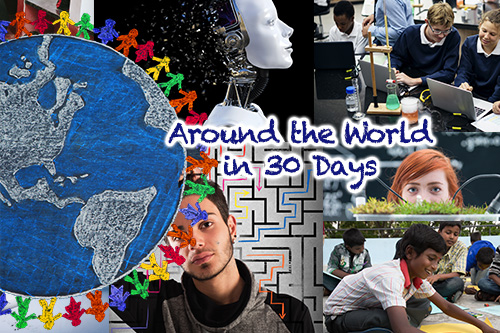
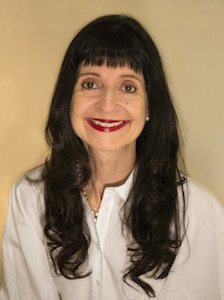
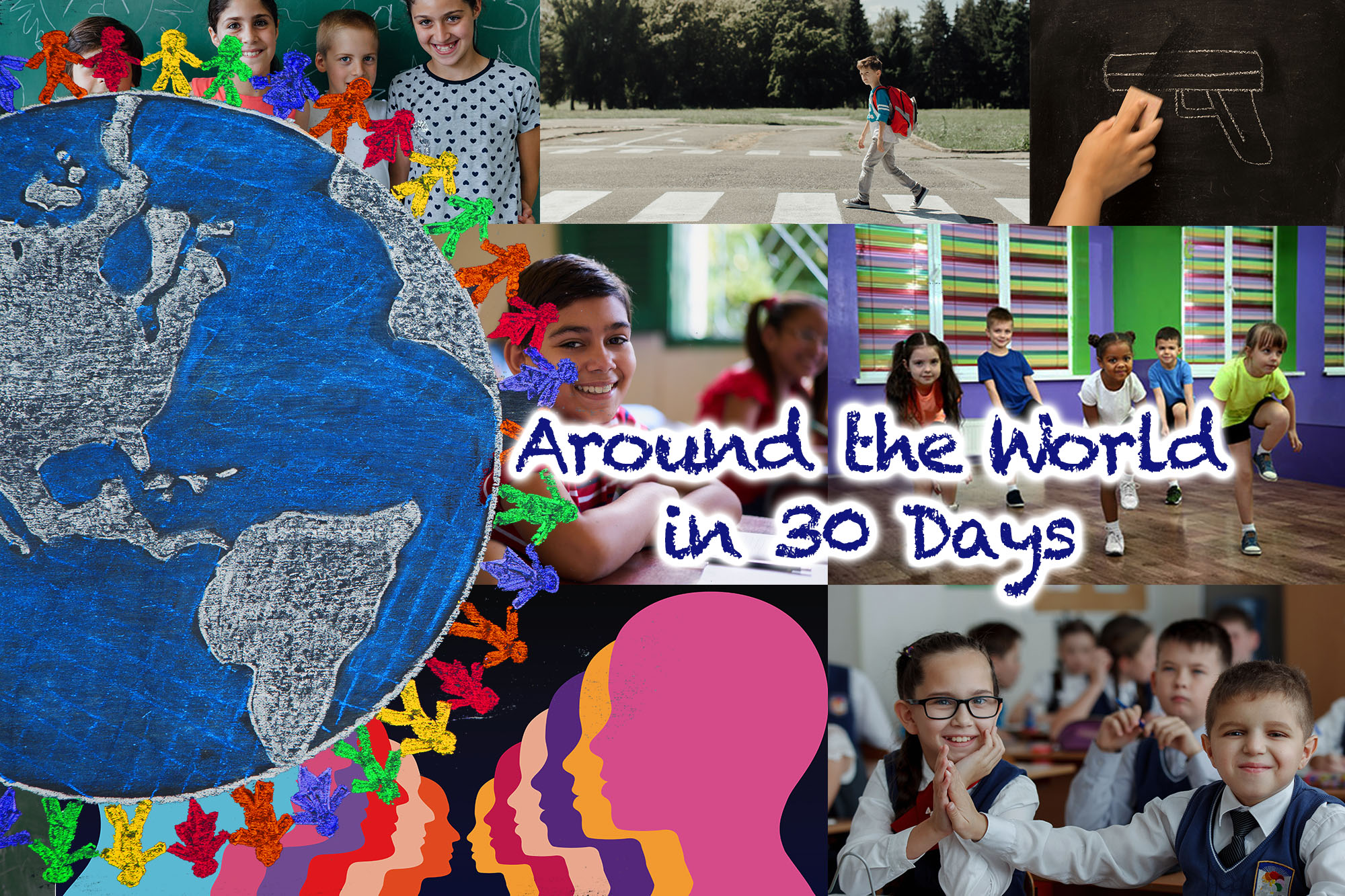
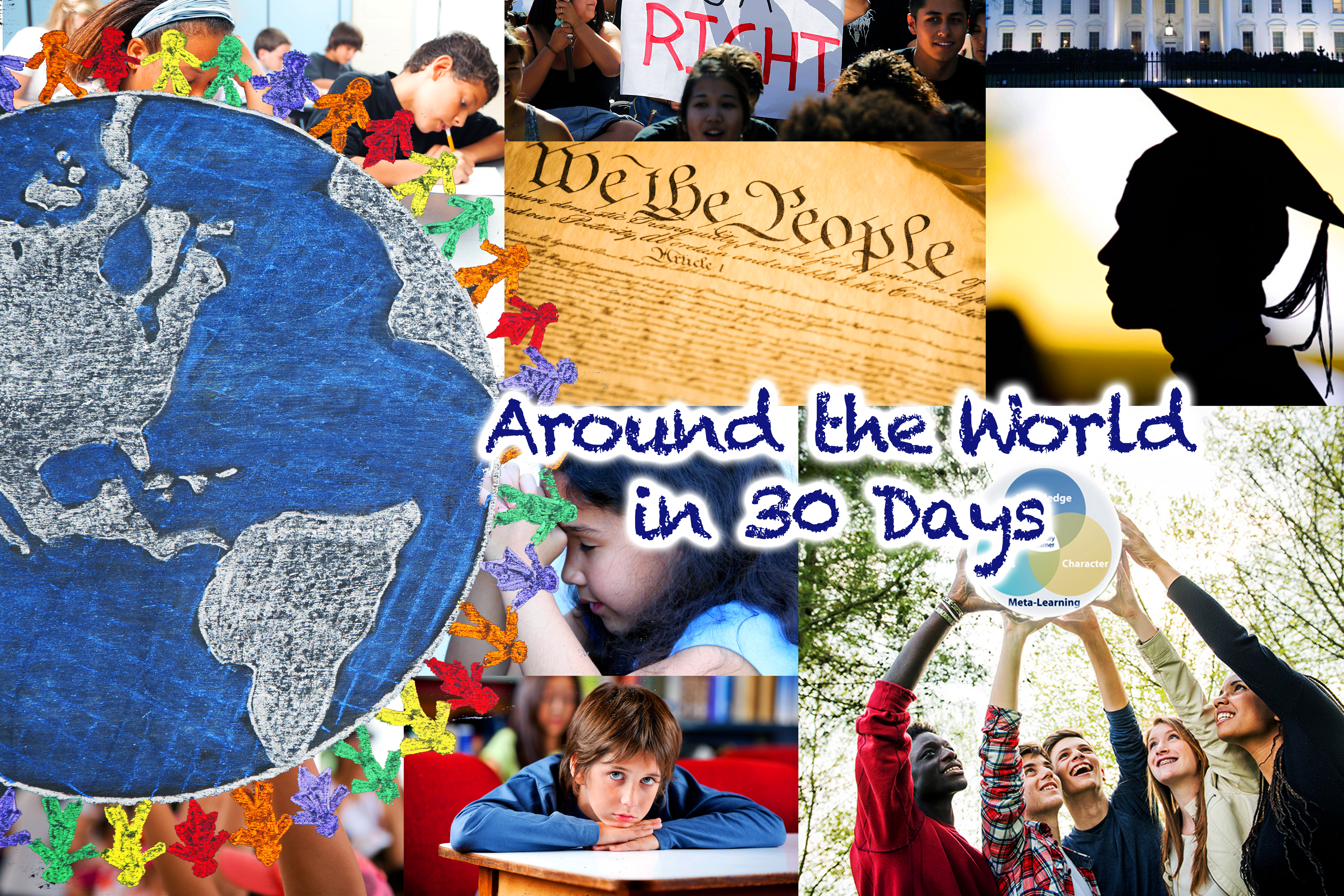

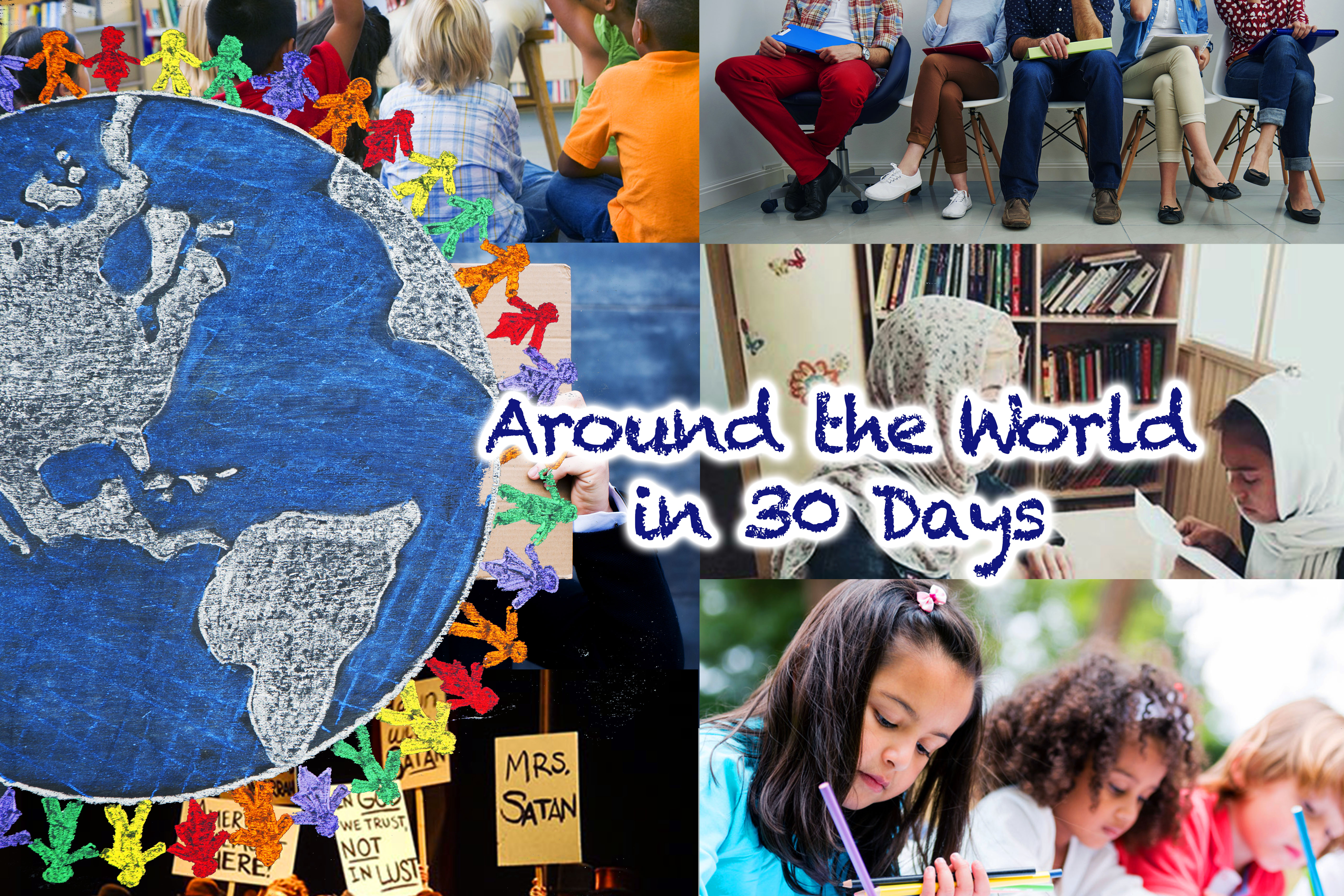
Comentarios recientes